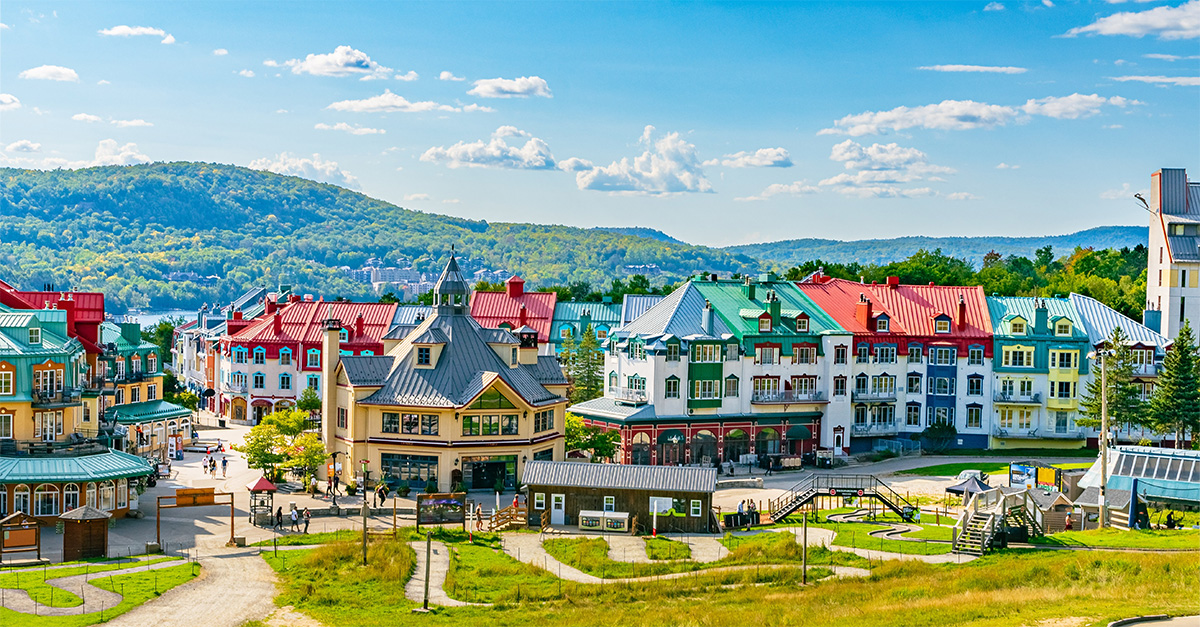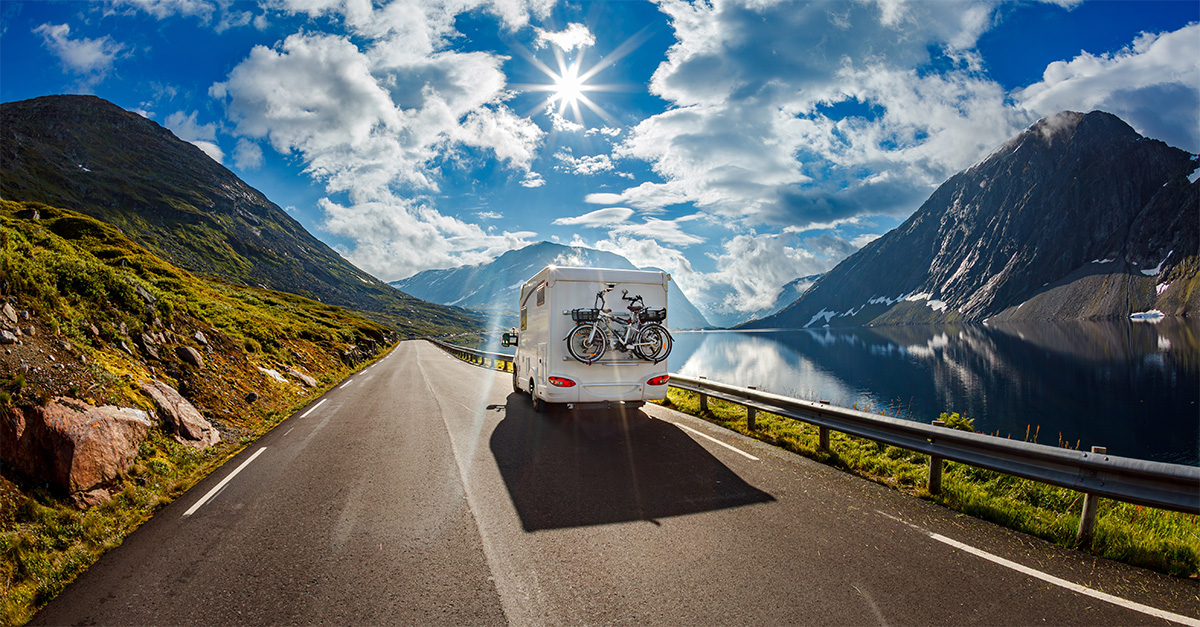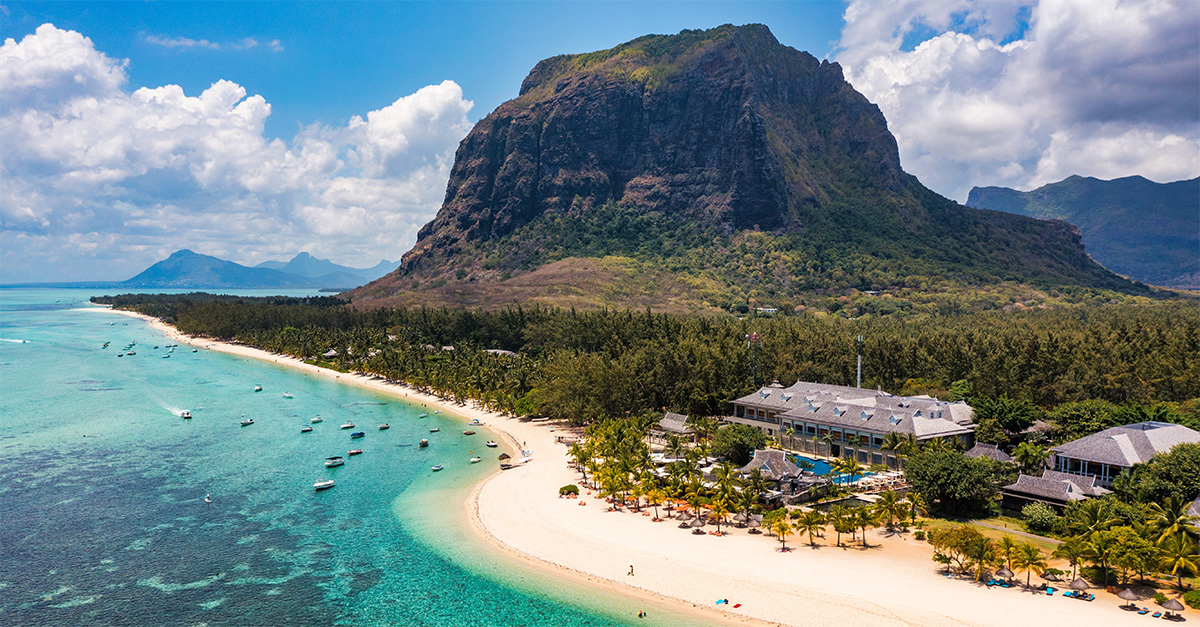Image credit: Wilderness Safari – Dana Allen
Joanna Booth looks at how safari experiences differ from national parks to private conservancies
Like this and want more details? Click here to download and save as a PDF.
The radio crackled. We’d been driving for some time in search of the wild dog pack. They’d finally been spotted, sniffing around a herd of impala.
These rarely sighted predators are one of the highlights of the Linyanti Reserve, a safari area in northern Botswana. Our excitement at the prospect of seeing them soared as the jeep sped towards a thicket in the centre of the reserve.
Our guide’s sharp eyes soon identified the bobbing ears of the pack, just visible over the long grass. Without hesitating he steered off into the grassland and we followed the dogs.
After a thrilling chase, the pack brought down an impala, and dragged it into the thicket to eat. Quick to make sure we missed nothing, our guide squeezed the jeep in between the low branches of the trees so we could see the dogs interact, feasting on their kill and making their trademark ‘giggling’ noise to one another in affection and excitement.
This was undoubtedly one of the high points of our stay at DumaTau, one of the Wilderness Safaris camps that sits in the Linyanti private concession the company leases from the Botswanan government.
Game drives on the protected land can only be taken by Wilderness guests, keeping the numbers of visitors low. And because the land is private, it’s not governed by the regulations that affect the national parks – where, for instance, we would not have been able to drive off the marked paths to follow the dogs.
Safaris across most African destinations can take place both in national parks, which are government-owned and controlled lands, and in private areas, such as concessions, reserves and conservancies that are either owned or controlled by private organisations.
There are pros and cons to taking safaris in both types of land. To make sure you book your clients on the right safari for them, it helps to understand what the differences are.
Here are some of the general rules – and common exceptions – but, as always, a knowledgeable operator will be your best friend when it comes to specifics.
Activities
National parks have a clear, marked network of roads and tracks, and all vehicles must keep to them. If the game wanders away from the road, jeeps can’t turn off the track to follow.
As we experienced to our benefit at DumaTau, those controlling private reserves tend to allow off-road driving, meaning it’s generally easier for clients to get close to the game, even if it involves some slightly bumpy driving over uneven ground or the need to duck to avoid low-hanging branches.
However, the flipside is that guests can’t drive themselves in the private reserves. Access is limited to those staying in the protected area, or travelling with a company that has an agreement with the owners or operators, and they’ll be driven by guides from their lodge or safari company.
National parks allow self-drive tourists to enter through the park gates like anyone else, and so are better suited to those who want to stay behind the wheel on their safari.

For clients who want to go walking on their safari, it’s usually advisable to choose to stay in a private reserve, as in most countries walking is not permitted in national parks – South Africa and Zambia are exceptions.
In all destinations, groups need to be escorted by both a guide and an armed guard – guests can’t just hop out of their vehicle and wander around.
In some safari destinations night drives are not permitted in national parks, so visitors have to be out of the park or in their lodge or camp by sundown, and can’t go back out until sunrise.
In private reserves, afternoon game drives can extend into the evening, with guides able to use torches to show guests the nocturnally active game. Kenya and South Africa are exceptions to this rule, with night drives allowed in their national parks.
Visitor Numbers
Any member of the public can access a national park, which means it’s hard to limit the number of visitors. So at busy times of year or in particularly popular parks, clients could find themselves surrounded by other vehicles and with their view of game obscured by crowds of other tourists.
Freedom of entry isn’t the only factor at play. Frequently, as the first established protected areas, the national parks can have the largest and richest populations of game, and so are popular for good reason.

Private game areas have the luxury of stipulating who can access the land, and most of the time it is only those staying at lodges and camps within their boundaries. This means the number of visitors will never exceed the number of beds on offer, so crowding isn’t an issue.
The position of many private safari areas means guests have the best of both worlds. Most border national parks, so offer the same experience in terms of terrain and game. It also means clients can head out for a day’s game drive in the park if they wish, but also have access to the private land.
Guests with spending power who want to see the Great Migration often choose the conservancies that surround the Maasai Mara National Reserve, in the hope of seeing the vast hordes of game without matching vast hordes of tourists.
From an environmental perspective, private reserves encourage a low-volume, high price form of safari tourism, helping to prevent the over-development of land. In Kenya, many concessions are owned by local communities, so guests staying in them can feel confident their holiday is benefiting ordinary people as well as large companies.
Although private conservancies pretty much always guarantee a low density of visitors, it doesn’t follow that national parks will always be busy. In Zambia, for instance, tourist numbers are small, and so traffic in the national parks tends to be low.
Visitor levels will also be dependent on the popularity and size of specific parks. In Tanzania, for example, the Ngorongoro Conservation Area can become very crowded – it’s popular and, as a large volcanic crater, is contained.
Yet in the south, the vast Selous Game Reserve is off the well-trodden ‘Northern Circuit’ and, as the largest reserve in Africa – it’s bigger than Switzerland – it’s never crowded. Both are national parks.

Price
Clients on a budget will find it easier to keep a cap on their spending if they stick to safaris in national parks. Self-driving is one way to keep costs down, but even if that’s a little too intrepid for some, the choice of lower-cost accommodation from which they can take guided game drives will be larger in public parks.
However, that’s not to say that luxury properties can’t be found in national parks – they’ll just sit alongside cheaper neighbours.
The limitation on visitor numbers that makes private safari areas more exclusive inevitably makes them more expensive.
Accommodation options range from the upper-middle to uber-luxurious, and camps and lodges are almost always small. From accommodation to dining to service, they’re tailored to the top of the market, and ably offer what this niche wants.
Advice from the experts
“Traffic in Zambia’s national parks tends to be low, but there can be a difference between lodges that surround an entry gate and have to do game drives in a busier area, and lodges that are in the national park itself or those that have arranged other entry points into the park.”
Ton de Rooy, Robin Pope Safaris
“In South Africa, Namibia and Kenya, riding safaris are not allowed in the national parks, so they only take place in private concessions. But in Botswana, they are allowed in national parks too, such as the one within the Okavango Delta.”
Claire Farley, 2by2 Holidays
“One of the frustrating sides to self-driving is the number of vehicles which suddenly congregate at the first sign of wildlife, whereas in the private reserves it tends to be just one or two of the lodge’s own vehicles. The benefits to self-driving are cost and being able to journey at your own pace with just your fellow travellers.”
Carole McFadden, African Pride




